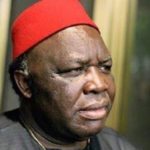AFTER the difficulties that last year was an epitome of, it makes sense to look towards the next twelve months for respite. At a critical level, the rash of candidate vaccines developed late last year, and since approved by a number of health authorities for use against SARS-CoV-2 (the virus that causes COVID-19) bolster this hope. But only up to a point. The supply constraints to producing enough of the vaccines to go round mean that the inoculation levels required to confer protection won’t be reached globally until mid-year ― if not well after. And so whatever will qualify as “normal” this year, after last year’s horrors will have to tarry a while. Then there are the peculiarities of the vaccines ― storage temperatures, for one ― that mean that infrastructure-challenged destinations such as ours might not be reached, talk less of fully covered, by year end.
Weighty though all of these are, they still are not sufficient excuses for refusing to contemplate and prep for a post-pandemic new. For economies like ours, for which the pandemic also helped dig up and then worsen existing problems, life after COVID-19 might not be any better for some time to come. At least, not before we actively start to remediate our situation. Yes, this year, we may avoid the troubles from having to lockdown the economy to restrain the virus’ spread. But malaria killed more persons last year and will kill more this year than did that awful virus in 2020. The larger burden of the problems we would have to contend with this year, so to speak, are of an old vintage. And none more so than the economic variety. The exchange rate of the naira was one measure that commanded as much attention last year as did the virus’ R number, caseloads and mortality rate. Despite avowals to the contrary by the monetary authority, we witnessed a creeping devaluation of the national currency last year. Depending on whose counsel you seek, this was either a bad thing (evidence of the loss of national virility and a huge burden on local businesses) or a good one (pro-competition, and necessary to discipline consumption).
Irrespective of one’s place in this divide, our wont as a people, concerned about the naira’s outlook, is to obsess on the balance on the gross external reserves. The only other variables of importance in the debate about the naira being the oil price and production levels required to keep the reserves at the desired levels. But this is only because we also think it proper that the central bank should be the main supplier of funds to a market where it also fixes the price. Able to deliver ourselves from this mindset, the challenge of adjusting to the lessons of 2020 would be that we finally see that there are other options to managing the national currency. A broader export base, for example, will mean that private businesses could also earn dollars that then help to support the balance on the external reserves. But such funds will be repatriated only if exporters are assured of a fair exchange rate for their export earnings. On the other hand, a fair exchange rate will mean that the markets and not the central bank’s circulars determine the naira’s exchange rate.
Of course, a central bank that does not have to write so many circulars each quarter ― legislating and explaining the meaning of its latest rulings on the foreign exchange market ― is a central bank that can best focus on its core objective: price stability. Which leads to the second problem with the economy: Inflation. Domestic prices have risen too strongly of late. The authorities argue that the problem is structural. And so all we have to do is wait for the effects of the one-off causes of the spike in prices to wear off. Except that data from the National Bureau of Statistics (NBS) point to rising food prices as the main push to higher headline inflation in the past six months. Factor in the Central Bank of Nigeria’s (CBN) intervention in the different links in the agriculture sector’s value chain, the Federal Government’s decision to shut the nation’s land borders to protect domestic producers from imported competitors, and rampant food prices, which are counter-intuitive policy outcome.
Given how poorly domestic output has been in the last three quarters, and where unemployment is at, supply constraints in the agriculture value chain are a more plausible explanation for rising food inflation. The low-intensity war going on in and around the nation’s breadbasket is a supply constraint, if ever I saw one. As is the effect of global warming in the region. All of which are strong arguments for a more flexible supply response in agriculture, in particular, and the economy as a whole. For far too long, policy making here has focused on the high cost of capital as a constraint to boosting domestic output. Accordingly, central bankers have tried to hold lending costs down by imposing strictures on both lenders and borrowers that make a flexible supply response impossible. In spite of our policy planners’ best effort, our infrastructure shortages and the desuetude of existing supply networks were always going to drive domestic costs up, especially that of financing. So, a much better use of fiscal resources in the near to medium term would be to improve our infrastructure endowment. Rather than fixate on one symptom of that dearth ― prices. Evidently, if lower cost and flexible supply responses matter this much for the economic outcomes we desire, then dirigisme will only take us so far. A competitive domestic market across all sectors of the economy is a far safer guarantee of affordable prices, product and service innovation, and efficient use of our increasingly scarce resources.
Undoubtedly, flexible market responses will need for its success, a competent regulatory framework. But we will not make the dent on unemployment, nor lower current rates of poverty and inequality without it.
- Oladeji writes in from Lagos
YOU SHOULD NOT MISS THESE HEADLINES FROM NIGERIAN TRIBUNE
As Nigeria Enters The New Year, More People Die Of COVID-19
Last week, Nigeria recorded 55 new COVID-19 deaths which is the highest in over four months, Tribune Online analysis reveals. According to data sourced from the Nigeria Centre for Disease Control (NCDC), the last time Nigeria recorded more deaths than last week was the 59 deaths reported in the 32nd week of the pandemic (August 2 – August 8)…
A close ally of President Donald Trump and the United States Attorney General, William Barr, has resigned his appointment after holding a meeting with the president…
COVID-19 Vaccine To Arrive Nigeria End Of January — PTF
NATIONAL coordinator of the Presidential Task Force (PTF) on COVID-19, Dr Sani Aliyu, has said the nation is expected to receive its first batch of the COVID-19 vaccines by the end of this month. Aliyu made the disclosure as a guest on ARISE News, on Sunday. Upon receipt of the vaccines, Aliyu said vaccination of the public, especially those that are vulnerable, the elderly…
Rays of the afternoon sun pelted her head as she fanned the embers beneath the half-cut iron drum with the smoke permeating the air. “This smoke is unbearable, Iya Maria,” said one of the three neighbours conversing under a makeshift shed about five meters away. Their voices rose and fell intermittently…
International Criminal Court Begins Probe Into Shooting Of #EndSARS Protesters In Nigeria
The International Criminal Court (ICC) has disclosed that it’s conducting a preliminary investigation into the recent #EndSARS protests in Nigeria, the British Broadcasting Corporation (BBC) reported on Wednesday…






